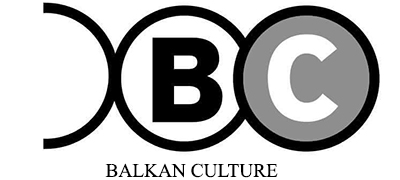THE ORIGIN AND TRANSFORMATION OF CIVILIZATION
BY
KONSTANTINOS MARITSAS
This email address is being protected from spambots. You need JavaScript enabled to view it.
Prologue
When Konstantinos Maritsas asked me to write a preface to the book The Origin and Transformation of Civilization, I was very pleased and happy for him, because he has been working in this research field for a long time and has already had some success. This edition summarizes the most important of his academic work. It contains various texts written by Konstantinos in recent years. In these texts the author examines different issues at the intersection of philosophy, cultural studies, anthropology and psychology. I believe that people who are interested in social studies and humanities will really enjoy reading this book.
The ideas put forward by the author are truly new and sometimes thought-provoking. You can agree or disagree with the author, but you will not remain unconcerned after reading. There is no doubt that the theory presented is an absolutely new philosophical theory. The author provides definitions for most philosophical concepts, such as “civilization”, “art”, “religion”, “language”, “poetry”, “freedom”, etc. All these concepts create a coherent theoretical system.
First, the author gives a fundamentally new definition of civilization, non-anthropocentric, as “survival of the weak.” The author believes that language and art, as well as philosophy and science, have been created unconsciously by weak men/males in order to describe their heroic deeds to women/females, with a view to being selected by them for reproduction. In other words, language and art became selection criteria, together with beauty and presents.
According to the author, the aim of the weak male, as a creator of civilization, was to survive by lying. In the author's opinion, language and art were created as forms of lies. Having achieved the aim of surviving by the weak male, lying, language and art became unnecessary. Thus, a civilized man found himself with an instrument, language, which was useless. It was then that he discovered new necessities – communication (truth, poetry and prose), philosophy, science, commerce, etc.
Moreover, the author supposes that cooking was also invented by men for women, in order to be selected by the latter for reproduction. The invention of cookingis considered to be an unconscious process of selection of a male by a female. In other words, cooking became a selection criterion too. A female, in order to show her choice of a certain male, produced laughter and love dance.
So, the author investigates the problem of human laughter and then humour also, in the context of the definition “civilization” on the basis of Darwin’s theory. The author supposes that humour was invented by men to describe their heroic deeds to women. Laughter, in its turn, was women’s reaction, to show their choice of a man.
Furthermore, the author examines some other interesting issues in the articles included in this edition.
Some important issues discussed in this book are:
- - The principle of natural selection in nature and civilization;
- - Civilization and art in the context of the Theory of Evolution;
- - Definition of language and art in the context of the Theory of Evolution;
- - Cooking as art in the context of the Theory of Evolution;
- - The origin of laughter and humour in the context of the Theory of Evolution;
Thus, the author explains the way leading from natural selection to civilization, and from cell to humanity (and mass extinctions). It is a general explanation of all aspects of civilization, because it is impossible to have language without religion, poetry without terrorism, art without love, etc. Human evolution has all those factors. It is wrong to explain each one separately. The author believes that everything is interconnected and should be explained by one theory – the Philosophy of Everything.
You may disagree with the author, you may with join him in an intellectual debate, but you are not likely to remain indifferent regarding this book. The author and his book invite us to plunge into a unique intellectual trip called “Comprehension of Human Civilization”. I hope that this trip will be interesting to anyone who will “come inside” this book.
PatyrbaevaKseniyaVadimovna,
Ph. D., Associate Professor, Department of Philosophy,
Perm State Agricultural Academy, Perm, Russian Federation

Leave your comments
Post comment as a guest